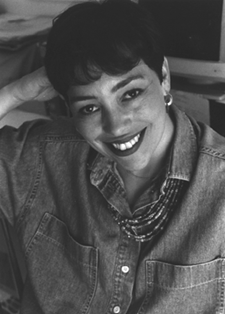 |
Toby Gordon |
Hungry Mind Review An Independent Book Review
Fiction ||| Nonfiction ||| Children's ||| Poetry BookWire ||| HMR Home ||| Discussion ||| Postcards ||| Bookstore |
When Are You White?
by Lise Funderburg
I don't want to dis academia, but whiteness studies? Since when is The Commentary a more pertinent text than The Life We Experience? I decided to take this question of whiteness to the streets, so to speak, and conduct my own field study with some fellow Americans. When, exactly, does whiteness show up in our lives? Is it a color, a consciousness, a culture? Is it transitional, transitive, transitory? Immutable? Is it something? Is it nothing? I came up with one question: When are you white? I tried a couple of dry runs, with friends, over the phone. The first, a white woman who lives in a predominantly white New Jersey suburb, said she's most aware of feeling white at PTA meetings, where brown faces are few and far between. Another friend, also a woman and also white, said she feels white when she goes to a large Manhattan hospital for cancer treatment, which currently works out to just about every other day of her life. "I feel so oppressed there," she said, "that to compensate, I become haughty and much more fearless and aggressive than I actually feel, because to behave in any other way is to become an instant minority, which is to be treated without justice or decency. I develop a certain bravado that I don't actually have. And that's white. I think so. I think a lot of white people approach things with a certain sense of entitlement that I don't normally feel." And why does going to the hospital confer minority status? "Because you don't have any control," she explained, "because you have a handful of middle-aged men touching you and telling you what to do and what not to do and you wait for hours on various lines so that somebody can invade your body."
Interviews With...
I was ready to collect data, but first, in a Jekyllian moment, I asked myself the question. My answer, at that moment, was that I am almost always white to other people when they hear my voice or learn my name. When they actually meet me, they still assume I'm white because my melanin-challenged features fit their expectations of what white is. The exception is when I'm with the black side of my family, many of whom I strongly resemble, but for pigment. Sometimes, not often, I forget how white I look. I'll be at an all-black party or conference and suddenly I'll glimpse a white face in a mirror, surprised to find that it is my own reflection. But what other people see in me is simply a measure of their myopia. I see identity as more than just what's ascribed, and when I look inward, what I see and feel is other than white. I realized that in order not to lead my subjects, I had to be careful, in asking my question, to avoid putting particular emphasis on either the "when" or the "you."
The strict research protocol to which I adhered lead me first to my own kitchen, where Don Kennedy, a carpenter, was replacing baseboard trim. As happens with even the cheapest of renovations, Don had been in and around my house longer than either of us could have hoped or desired, and so we had become pals. Trading on this new friendship, I stuck a microphone in his face. He was the first of many I spoke to -- neighbors, acquaintances, and strangers, some famous, some not, all willing to take on a question that is somewhere between uncomfortable, unexpected, and unanswerable.
Don Kennedy
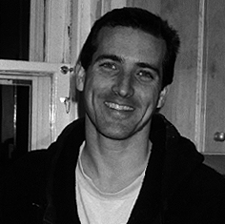
Age: 33
Location: Wyndmoor, Pennsylvania
Occupation: Lead Carpenter
Race/Culture/Ethnicity: White, Irish American
Uh. Hm. When do I think of myself as white? Never. What's color? Okay, I'm trying to think of an answer. I think of myself as white when political issues come up, I guess. But not in general, as a being. When they talk about, I mean, there's such an uprising of, like, Afro-American, know what I mean? I mean, somebody could've been born here three hundred years ago, but they still consider themselves African American. My grandfather doesn't say he's Irish: He says, "I'm American; I was born here." So I kind of have that mind-set of well, fine, but you're not African, really. And when issues come up about affirmative action and jobs, you know? Last week there was something in the paper. Some company was selling products the black community didn't want them to sell because only the black people should get the proceeds from whatever this stuff was, which is kind of crazy, you know what I mean? It's like, You can't do this because you're not black, but he can because he is. I think of myself as white then because what if I was the person selling whatever it was?
Claudia Raab
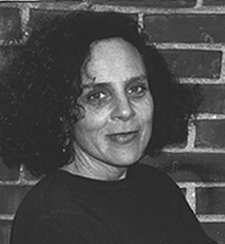
Age: 47
Location: Philadelphia, Pennsylvania
Occupation: Cooking student, community-builder
Race/Culture/Ethnicity: White, Jewish
When I go in a very black neighborhood I feel very white. When I'm scared by young black men in groups. When I do things that I feel like I'm privileged to do, like buy new cars and houses. That's when I feel white the most, probably, is when I feel privileged.
Aracely Rosales
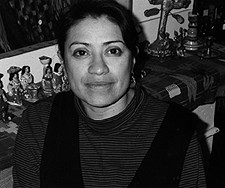
Age: 40
Location: Philadelphia, Pennsylvania
Occupation: Director of Health Education Program
Race/Culture/Ethnicity: Guatemalan American
What do you mean? White as in color, as in skin? When am I white? When I need to be white. I think I have observed and assimilated lots of the culture so that I can actually be like white people in a way that, culturally, I need to be. When I feel like I need to be just like the rest of the people so that I am not pushed aside. When I need to claim a sort of a status or place, you can call it that way, I need to be white. I wouldn't say you can act it. You just have to be. And I have learned how people are in certain occasions and I know I have to be the same way. Most of the time, it happens in job situations. There, I need to be like the rest of the people that I am with and I need to speak at the same level if it is job-related. Whatever people are talking about, I need to be documented and talk about the same thing. And for me, that's being white, because I'm totally different than what I really am at home, where I don't talk about certain issues and I don't discuss certain situations. For me, culturally speaking, I'm a Latina person, so I wouldn't say I totally forget who I am, and I am not trying to be somebody that I am not. I just need to be like the others.
Let me give you a situation. At the airport. Here I am, just coming from a trip to Guatemala. I'm a different color skin. I definitely have an accent. Anybody can see that I am not a white person. However, I'm a USA citizen and I have the same rights a white American person has. And I need to show that because otherwise people will discriminate against me immediately, at the first moment they see me. They look at me and the first thing I can sense is, "This person doesn't speak English." So the first thing I do is speak English, to show them I do and I can hear what they're saying and they can talk to me freely. At that very moment there, I'm saying something. The attitude changes. However, still there is a barrier. I'm still a Latina person with a different skin color and eyes and definitely an accent, so they are trying to expect something else from me.
So we are coming inside [customs] and there are two lanes. So the lady, of course a white lady, she says, "Non-residents and residents this way please." I don't pay attention because I know my way. I read. They don't need to tell me. I have already oriented myself and I know where I'm going. So she talks to me again and she says, "Excuse me, this is a USA citizens' lane."
I turn to her and I say, "I know what I'm doing. I know it's a USA citizens' lane. I can read."
So there, I'm showing her. I need, first of all, to be assertive, which to me means being white. Lots of people -- not everybody -- but lots of people make assumptions just because of the way you look or the way your accent is.
Nampeo McKenney
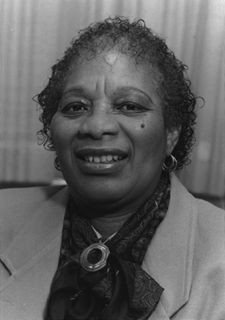
Age: 50-plus
Location: Washington, D.C.
Occupation: Assistant Chief of Special Populations, U.S. Bureau of the Census
Race/Culture/Ethnicity: African American
Oh, boy, I guess my immediate reaction is, when you're not one of the people of color. Yet I know that is not a complete answer. Traditionally, that has been the answer, but certainly there are some groups now that we have traditionally thought of as white who say that they have an identity of their own. Certainly some of the Arab American groups feel that they have an identity of their own. And so in that sense, what is white is changing. And perhaps it has always been a concept that has been evolving in the country-what is white and what isn't.
If one looks back, in the sixties and seventies we considered most Hispanics as white and many Hispanics considered themselves as white. And there has generally been a change in the way that group has perceived itself. Certainly, there's a substantial proportion of Hispanics who no longer identify as white.
I don't think I'm ever white. No. I don't think I'm ever white at all. It's interesting, what's happened with race relations in our country. At one time among blacks, the ideal group was white. And one thing that came out of the civil rights movement was a self-acceptance of oneself as being black and being really proud of that, whereas before, there really had been a feeling that white was what everyone wanted to be.
Jeff Yang

Age: 29
Location: New York, New York
Occupation: Writer and editor of A. Magazine: Inside Asian America
Race/Culture/Ethnicity: Asian, second-generation Chinese American
I would actually have to say never. I think that whatever whiteness, like a residue, has clung to me from my years of exposure and culture and training, it never goes beyond the skin. It never even sinks into the pores. And I'm at a point now, in fact, where the more I'm with white people, the less white I feel. You'd think that there was a stage in which you would be assimilated in the Star Trek "Borg" sense, not the racial sense. That you would become part of this larger fleshly being, this body of society that, in its default, is white. Because, after all, whiteness isn't actually something somebody is. It's something somebody ends up being when they're not anything else in our society. You don't say, "That's my white friend." But if the person's anything other than just plain old vanilla, you have to say, "Oh yeah, this is my black friend, this is my Asian friend." White culture is the option we rest on; it's the way we go when no choice is made. When I talk on the phone with you, when I don't evince any kind of accent, you assume I'm white until I tell you my last name or until I meet you. And that's happened to me any number of times.
I may have been at my most white when I was back in school, before I was sensitive to being anything different. It's funny. Back then is when I had my most prominent incidences of casual racism, the kind that kids deal with: people laughing at you, calling you Ching Chong names, making Chop Sake gestures, comparing you on a good day to Bruce Lee. But back then, it didn't make sense as a race thing. It was just another form of difference that I bore up with and that set me apart. No different from being short, let's say, or fat, or nearsighted or any of the other things many other kids in my school were.
That was the beginnings of gawky adolescence, when people become aware enough of difference to point it out and are still so unaware of diplomacy as to do so in public. And so back then, I still felt, for what it's worth, White with a capital W, even though I knew my skin was different and my eyes were different and my hair was different, or my culture, my food, and my parents were different. It wasn't until I was older-once people were sensitive enough to no longer display that casual or arrogant differentiation of race-that I started to pick up on those subtle things which in some ways forever separate nonwhite from white.
I went to school at Harvard, which has a certain set of traditions and a certain inbred heritage, and here are some things you notice: When nonwhites sit together at a table, they're called isolationists. It's pointed out: "How come you always sit with black people? How come you always sit with Asian people?" When white people sit together, they're friends. I'd go into restaurants with a group of friends, most of whom were white, and just happen to be left out of the party by the maître d'. He'd say, "Will it be five?" "No, it'll be six, because we have our Asian friend."
These aren't things to be angry about, or even things to necessarily allow to abrade your skin. They're things that are realities when whiteness is the default, like in our society.
When I go to places like Hawaii or California, places where white as default does not exist -- where, in some cases even, Asian as default exists -- it's a different world and a different feeling. And makes me understand, briefly, what it means not to be white but to be in a white man's world, you know, with the hand of the majority. You asked when am I white. If I'm in that sentence, if it's about me, the answer is never. When am I white to you? I could be right now. I could be anytime that there isn't that telltale evidence that I'm not. Your question presupposes the idea that whiteness or blackness or any kind of race-ness, to horribly mangle that idea, is transitional. It's something that you can endow, something you can move through, something you can remove at times.
Jeaneane Garofalo

Age: 32
Location: New York, New York
Occupation: Comedian and actor
Race/Culture/Ethnicity: White, suburban childhood
It depends on if you're asking me that philosophically, literally, or feeding into the stereotypes of whiteness. If I'm feeding into the stereotypes of whiteness, I guess I am white when I laugh at a traditionally black comic, or like in the Tarantino film, Jackie Brown, with Samuel Jackson and Chris Tucker: They use the word nigger a lot. How white I am to laugh.
I'm literally white all the time, I guess, unless I'm using my bronzer, and then from the neck up I'm a little bit tawny. And I guess I'm philosophically white when I'm in a bad mood sometimes. Like, if I act racist, I'm philosophically white, since whites are notoriously bigoted since the Big Bang, I guess since the rape of the Native American land, straight through to Selma and beyond. Today I was walking from 75th and Lexington downtown, and this group of -- that I'm even categorizing is making me philosophically white -- this group of black boys were walking one way, and I bumped shoulders with one of them. And the guy goes, "Bitch!" like that, and my first response in my head was, "Shut up, nigger."
But it was not even the blackness; it was a response to "bitch." It was more gender related. He stirred my ire and as a woman I was so enraged. If it had been a white guy who said "bitch," my first thought would have been, "Shut up, cocksucker." I was thinking, What's a damning word back? and "nigger" came into my mind. I guess I was philosophically white when I thought that. And to be quite honest, it's embarrassing. I think it's more, like I said, a gender thing, and it wasn't even a color thing. I was being nasty. `Cause I just hate bitch and cunt so much, whether I hear girls say it or guys say it.
I never say the word nigger out loud, except right now, to tell the story, because I'm embarrassed and being honest with you, but I NEVER say it. Never, never. I don't even repeat it, like if I'm retelling the scene from the Tarantino film. Like I never use the word bitch or cunt either. Ever, ever, ever.
Walter Mosley
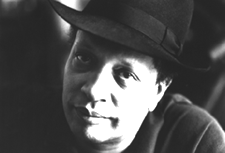
Age: 47
Location: New York, New York
Occupation: Writer
Race/Culture/Ethnicity: Black
My god, what a question. Huh. God. When am I white? Hm. When am I white. Hm. Hm. Hm. For me, the question is a funny question. I start off by thinking, well, when am I a race? Which is a very small amount of the time. I'm not a race eating my shredded wheat. And I'm not a race in most of the structuring and formation of a novel. I'm not a race, usually, when I'm sleeping, when I'm breathing. And when I am a race, I guess there are three different ways of looking at that, one being a race in somebody else's eyes, which is most of the time. There's one in my own eyes, and then there's one just kind of objectively, culturally. In my own eyes, when I'm a race, I'm black. That's what I think and what I've always thought.
In other people's eyes, usually I'm black. Sometimes they might be looking at me and they don't know. On a plane three days ago, a fellow thought I was Egyptian. And then the other day a guy from Israel thought I was from the Middle East but he couldn't quite tell where. It's like, well, they didn't think I was white, but they didn't consider me a black American, either. And, of course, there's times when you talk to people on the phone or interact with them over the Internet or by mail and they might get confused because I might not fit into what their prejudices about being black are. That happens less now because black people appear in more and more places. It's just like with women. You used to say, "I went to see the doctor," and people'd say, "Well, what did he say?"
Now, people say, "What did they say?"
"When are you white?" is a black person's question. That's the way I look at it. If you start to say I'm so affected in the objective way and infected in the negative way by European culture, then a whole bunch of me, some black people might say, is white. White in the language, the culture that's taught in school, the images portrayed on television, and so on. Whereas you start talking about European influences to people who are white, and they say, oh yes, I'm Irish or I'm Italian or I'm Russian or I'm Jewish-which isn't even considered white. If Jews and Gypsies went around saying that they're white, Europeans would just laugh. They say, "Yeah, right. You're white but you're not French." So when I talk, I say, "Yes, I met my Waterloo with her." And you'd go, You're being influenced by whites. Well, yeah, but I'm being influenced actually by European history and a predilection for that Western European history that Americans identify with.
Perhaps some white people would ask this, but it's a black person's question. It's a question that comes from race and racism and black people are more affected by racism than whites are, as a rule, because it's their world. It's their people on TV, it's their people in history, and it's their people in the White House. It's their people. And so they can slip into the idea that this is normal, this is what is. This is inside; black is outside. So, "When are you white?" is not an important question to white people. When am I gonna get what I deserve? When am I gonna get a better paycheck? When am I going to get on the television or on the radio is much more the question than, "When am I white?" It's kind of a question that comes out of a deep concept of race and racism. A black person's question.
Kate Clinton
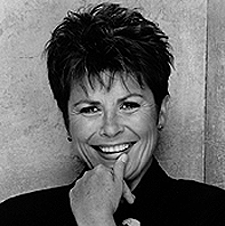
Age: 50
Location: New York, New York
Occupation: Comedy writer
Race/Culture/Ethnicity: White
When I wake up in the morning next to my brown girlfriend, and I look at my arm, it's tragically white. Especially about this time of year, when a white person-especially in the Northeast-has not actually seen their own naked legs since November. That is truly white. And this is the time of year when my friends start going to tanning salons, start to use those creams that make them look like they were dipped in Betadine, which is like this douche, I think, this carrot-colored thing. That is tragic whiteness.
Michael Rosen
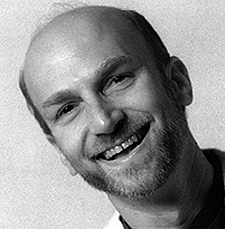
Age: 47
Location: Glenford, Ohio
Occupation: Poet and author
Race/Culture/Ethnicity: White, Jewish
I felt white when I lived in this urban Columbus neighborhood where I clearly was in the minority, a conspicuous minority. When kids would ask if my dogs bit as the first question, I realized a cultural difference, not simply a color difference. My idea of why you had dogs had nothing to do with biting, and yet the kids I would confront, black kids, would ask, "Those dogs bite?" which meant more to me about my nature than about the dogs' nature.
Veronica Chambers
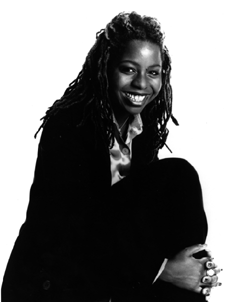
Age: 27
Location: Brooklyn, New York
Occupation: Writer
Race/Culture/Ethnicity: Black, first-generation Panamanian American
When am I white? Oh my god, that's so scary. It's scary because I definitely think there are times when people choose to ignore my blackness. What terrifies me about it is that they do that as a quote-unquote reward for my accomplishments or for my ascent into the middle class.
At work -- with magazines being so undemocratic and so white -- I think there are times when people choose not to see my blackness. And in some social settings, like whenever somebody says, "You're not like other black people," implicit in that is a kind of, "You're not like what I think black people are, therefore, you're not black."
They're saying, "If I can talk to you at a party on the Upper West Side, and you don't say anything radical and you don't bring anything ethnic into the conversation," then there's a kind of acceptance in a sense that I'm quote-unquote white, because they can relate to me.
Being a black immigrant, too, figures in. Like when I was on book tour, there wasn't one city I went to where somebody didn't say to me, "Well, you've got to admit that part of the reason you're so successful is because your parents are Caribbean." That goes back to what I said about whiteness being a reward. If somebody meets me and doesn't attribute negative black qualities to me, then in their minds -- not all people, but obviously some people -- what they do is reward me with a kind of white status. Yes, that's what it is. Honorary whiteness. Sometimes, because I'm from another country, I speak another language and my lineage isn't directly African American, because I don't directly fit into the black American/white American context, if somebody appreciates who I am then they want to push me more towards the white side than the black side.
The other thing is that I'm white on the phone ninety-nine percent of the time. I've had a lot of people assume I'm white. What's hardest for me is when I'm talking to someone who is audibly black who is giving me shit 'cause they think I'm white. So I have to signal. I either start talking about my dreadlocks or I start talking about Puffy and Biggy Smalls.
I did a phone interview with a guy who was an actor, who asked me out on a date and then drove past me four times in Los Angeles. It was so awkward because it never occurred to me to say to him, "By the way, I'm black."
And I was standing there, because I didn't even know if I wanted to tell him. You know? It was really awkward. And it happens when I call to get an apartment, so it's like all the old stuff. But it's really hard because this is just the way that I sound.
Derrick Bell

Age: 67
Location: New York, New York
Occupation: Author and Law Professor, New York University
Race/Culture/Ethnicity: African American
In the United States, where we focus on individual rights and everyone being equal, the fact is that from the very beginning of this society, there has been a concept of whiteness that really means those who look white and are able to identify as white are white. In this country whiteness denotes a kind of property. In a country and a government based on the protection of property and wealth, a great many whites really don't have that much, at least in comparison with those at the top. And yet, we have never been able to mount any sustained political push for socialism or communism. Now there may be some good reasons for that, but basically those who have little are able to identify with those who have much on the basis of the commonality of their whiteness. And they're able to dis-identify, feel superior to those who are not deemed white. And the law and politics all serve to uphold and provide reinforcement for this concept of whiteness.
We saw how it worked prior to 1954 with segregation and prior to 1863 with slavery. But even in our modern, equal opportunity era, there is a great deal of upset -- affirmative action being the best, though hardly the only, example -- when it is perceived that a program or judicial decision is going to advantage nonwhites over whites. And the only explanation for that upset, given the fact that similar advantages are often created on the basis of class, on seniority, on sex, is one that reinforces my sense that there is a property value in being white. Thus, there is no opposition, no political opposition to legacy admits: in some of our finest schools, twenty to thirty percent of the students are admitted on the basis of the fact that their parents went to the schools. And yet, any affirmative action programs at the schools are always under serious criticism and political attack.
Clearly the major beneficiaries of affirmative action over the last twenty years have been white women. And yet there's very little opposition to continuing policies that recognize and give priority or preference to white women. The main opposition is to nonwhite. Again, the advantage going to beneficiaries is the same, but the opposition focuses on the area where it seems like a devaluing of the property value in being white.
If Clinton or others really wanted to deal seriously with the problems of race in this country, there would not be any focus on whether blacks are ready or good enough or smart enough, civilized enough, to be treated equally, but rather it would be focusing on whites and asking them the question, "Beyond the presence of blackness, what does it mean to you, really, to be white in this country? Of what value is it to you to be white?" If people really had to deal with that, they would come to see both the benefits and the disadvantages. Often enough, social programs that whites need, like welfare programs, are defeated or undermined because it is assumed that these programs are unfairly benefiting blacks. My new book, Afrolantica Legacies, builds on this sense that there is an unacknowledged but no less real property right in being white in this society. To address this may undermine for many people an important part of their self-esteem, but until this is addressed, hopefully by a person high up in our government and with a lot of follow-through, it's going to be very difficult to bring about any meaningful change.
This is not to take away from the goodly number of whites who are holding conferences, writing books and periodicals, both acknowledging the property value of whiteness and dis-identifying with that aspect and trying to get others to do so. I think the mammoth task of trying to get this society to look seriously and accurately at racial issues will require much more in the way of government involvement than we've ever gotten before.
When am I white? I think there are characteristics that go with whiteness. Just as no white can fully disengage himself or herself from being white, blacks can't fail to take advantage of aspects of it. That is, when you're well-dressed doesn't mean that whites on the elevator aren't going to shrink over into the corner, but it is less likely to happen under those circumstances. When you're stopped by the police and are able to both use standard English and produce an identification that puts you at a major university or corporation, in effect, you then are treated to some little degree as though you're white.
Susan Faludi

Age: 38
Location: Los Angeles, California
Occupation: Writer
Race/Culture/Ethnicity: White
I'm aware of being white when I'm the only or one of the few people in the room who's white. That's why this whole notion of whiteness studies is rather bogus, because the fact is, a white person in America is very rarely in that situation, so very rarely feels white.
The desire to make whiteness into an identity, to turn whiteness studies into a serious discipline, comes in part out of living in an entertainment culture, by which I mean that what matters is being noticed and the way you get noticed is judged on, essentially, being the object. The ordinary white guy looks around and sees there seem to be two ways of getting noticed. One is to be a super celebrity, to be Bill Gates, to have so much wealth, power, and influence no one can ignore you. Now, that's not very feasible for any but .0001 percent of the population. But the other way is to draw attention to yourself because of your oppression, because you've been persecuted in some way, because you've been a victim.
That's more doable. However, if you're a white person, that's also a bit of a stretch. Oppression goes along with this because the entertainment culture is drawn to an object rather than a subject, someone who has been acted upon. Because the whole culture itself is one of objectification.
The other aspect of seizing upon whiteness as an identity is that we're all scrambling for some way to fashion an identity in the extreme deterioration of society. People used to feel embedded in their history and the towns where they lived and their parents and grandparents lived-in a localized realm, where people knew them and knew where they fit, and they felt they were really participants and connected. That's gone away. And what's replaced it -- well, nothing's replaced it. That's the problem. So people feel they've gone from being anchored in a world where they were recognized and known to finding themselves in orbit, untethered, and lost in space.
It seems like the only way to get yourself re-tethered is to draw the attention of the satellites. I think a lot of people have the sense that there is no community where they are and whatever community there is must be inside that box, the television, where they look to see, "Who are these people and how did they make a name for themselves? How do you make yourself visible?" But in a funny way, whiteness is a kind of invisibility. You can't do anything with it; it's a backdrop. And I suppose the lazy man's approach is just to do this little hat trick and claim, "No, no, no." White is a color, too.
So if you're going to define yourself by whiteness to make yourself visible, I think you end up making yourself invisible, because whiteness is a particularly meaningless category. This is a real problem with identity politics, 'cause it's refusing to make any effort to make meaning out of the particulars of your life and instead to define yourself by some little categories which really, in the end, are only of significance when they're woven into who you are. To make that one aspect the whole aspect of you is to sort of erase yourself.
Just speaking from the corner of identity politics that I know well, which would be feminism, I don't particularly like this recent development of the last ten years. It's not just feminism, but it's throughout political movements, civil rights movements in America. I'm not sure how to sum this up. To me, feminism is a way to free ourselves up to be more fully who we are, to be more complicated, and to get away from these limiting and false molds that are imposed on us by society. And instead, I suppose because there's been such a breakdown of other ways to define ourselves, people seem to have clung to these molds to the exclusion of all else.
To say you're white is only to say that you weren't held back by something or you weren't kicked around in the world because you had some label on your back. But that's not how whiteness studies seems to be focused. It seems to be focused instead on turning whiteness into another burden and to get that same kind of, uh, eh, rather cheap moral superiority: Look at me, I've suffered. I notice it's pretty much all folks who are "white trash."
But mostly, I think it's sort of lazy. Those abstractions -- those labels -- disturb me, because it's a way of not really reckoning with who you are and what your experience has been. And I keep thinking, isn't that what we were trying to get away from? The label is just a starting off point. It's a funny sort of mask people hide behind, because I think it's a failure of language. People don't really know how to talk to each other, so they hold up these little signposts, but the signposts aren't really very revealing. They conceal more than they tell you about the person who's holding the sign.